Meet the 2018-19 Fellows
Jenna Abyad

RISE Scholar: Summer 17
Program: Microbiology and Molecular Genetics Program
Research Topic: Jenna is interested in ribosomal interactions of Shiga toxins (Stxs). Stxs are virulence factors produced by foodborne pathogens: S. dysenteriae and E. coli. Infection with these foodborne pathogens can result in hemolytic uremic syndrome (HUS), which is the most common cause of acute renal failure in young children.
Current status in graduate program: Completed Master's in Microbiology and Molecular Genetics, October 2021
Advice for prospective graduate students: Jenna wants prospective graduate students to know that Rutgers has allowed her to gain new scientific knowledge while taking part in cutting-edge research in a collaborative environment.
Angelica Barreto-Galvez

RISE Scholar: Summer 17
Undergraduate Studies: Pontifical Xavierian University in Colombia and New Jersey City University
Program: Ph.D. in Molecular Bioscience at Rutgers.
Thesis Advisor: *pending
Ph.D. Research Topic: *pending
Support post Super Grad Award, other notable Awards, fellowships, publications or accomplishments: *pending
Current status in graduate program/Expected graduation: Graduated with Ph.D. in 2023 and now works as a program manager at the NJ department of Health
Advice for prospective graduate students: *pending
Steven Clark
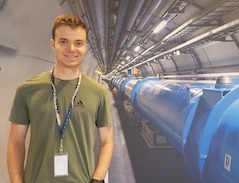
RiSE Scholar: Summer 17
Undergraduate Studies: Colorado School of Mines
Program: Ph.D. in Physics
Thesis Advisor: Dr. Eva Halkiadakis
Ph.D. Research Topic: Steven is a member of the Compact Muon Solenoid (CMS) Collaboration. CMS is a particle detector located at the Large Hadron Collider in Geneva, Switzerland. His project, which will eventually turn into his thesis, involves using Machine Learning to improve the way we detect photons and other particlesMore information about Steven and his research can be read at stevenvclark.com.
Support post Super Grad Award, other notable Awards, fellowships, publications or accomplishments: Steven was fortunate to receive the National Science Foundation Graduate Fellowship after his first year which has allowed him to explore some outreach opportunities, such as instructing high-school students on the basics of Particle Physics during the Rutgers QuarkNet program.
Current status in graduate program/Expected graduation: Graduated with Ph.D. and has accepted a position as a Corps Member with Teach for America
Advice for prospective graduate students: Don’t forget to have fun! It’s important to remember to invest in yourself and still participate in hobbies you enjoy, so don’t be afraid to turn off the computer and go do something for yourself!
Jacqueline Saenz
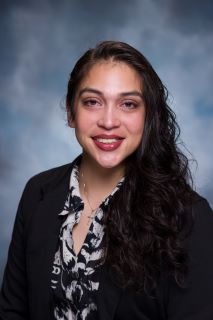
RiSE/ Cellular Bioengineering Scholar: Summer 15
Program: Molecular Biosciences- Cell and Developmental Biology
Undergraduate Studies: California State University-Northridge
Thesis Advisor: Pingyue Pan
Ph.D. Research Topic: Parkinson's disease gene, synaptojanin1, regulates dopamine neuron function.
Support post Super Grad Award, other notable Awards, fellowships, publications or accomplishments: Publications:
• Saenz,J., Khezerlou,E., Aggarwal,M., Shaikh,A., Ganti,N., Herborg,F., Pan,P. Parkinson’s disease gene, Synaptojanin1, dysregulates the surface maintenance of the dopamine transporter. npj Parkinsons Dis. 10, 148 (2024)
• Mejaes,J.I., Saenz,J., O’Brien,C., Rozario,S., Pizzano,C., Pan,P., Barker,D.J. The effect of the Synaptojanin1 gene mutation on reward processing and motivational behavior. Front Behav Neurosci. 18: 1359225. (2024)
• Saenz, J, Zhou,X., Barker,D.J., DiCicco-Bloom,E., Pan,P. Cocaine-regulated trafficking of dopamine transporters in cultured neurons revealed by a pH sensitive reporter. iScience 26, 105782. (2023)
• Khezerlou,E., Saenz,J., Prakash,S.S., Pan,P. Live-neuron imaging analysis of basal surface fraction and dynamic availability of the dopamine transporter using DAT-pHluorin. (submitted under review)
• Uppal, S.K., Uhlendorf, T.L., Nuryyev, R.L., Saenz, J., Shanmugam, M., Ochoa, J., Trigt, W.V., Malone, C.S., Julian, A.P., Kopyov, O., Kopyov, A., Cohen, R.W. Human neural progenitor cells ameliorate NMDA-induced hippocampal degeneration and related functional deficits. AIMS Medical Science, 8(3): 252-268. (2021)
• Pan, P.*, Sheehan,P., Wang,Q., Zhu,X., Zhang,Y., Choi,I., Xianting Li, Saenz, J., Zhu,J., Wang,J., Gaamouch,F.E., Zhu,L., Cai,D. and Yue,Z.*. Synj1 haploinsufficiency causes dopamine neuron vulnerability and alpha-synuclein accumulation in mice. Hum Mol Genet, 2020. 29(14): p. 2300-2312. (2020)
• Munoz, A. M. A. and Faustino, A. I. R. Why Aren't There More Genetic Rat Models of Neurological Diseases? In W.M. Tierney, A.J.J. Lemus, C.T. Lao, B.A. Ortega, M. Olmos, J. Saenz, T.L. Uhlendorf and R.W. Cohen (Eds.), Rattus Norvegicus: A Review and Directions for Research, pp.1-33, Nova Science Publishers. (2019)
HONORS, AWARDS AND FELLOWSHIPS:
• Andrew Giovanni, PhD Neuroscience Travel Award 2023
• Society for Advancing Chicanos/Hispanics and Native Americans in Science (SACNAS) Travel Scholarship 2023
• Scientist Mentoring & Diversity Program for Biotechnology (SMDP Biotech) 2023-2024
• Rutgers Brain Health Institute Trainee Travel Award 2022-2023
Current status in graduate program/Expected graduation: 7th Year about to defend in Novemeber
Advice for prospective graduate students: Choose your mentor and lab wisely. While you may have specific ideas about the type of research you want to pursue, it’s important not to focus solely on the research itself when selecting your thesis lab. Speak with the current people in the lab to gain a better understanding of what to expect. This part of your journey (grad school) is primarily about the training you receive to become a better thinker. You can concentrate on your research interests later, during a postdoctoral position if you choose. While there may not be a perfect mentor or mentee, having a strong relationship that aligns with each other's working styles can significantly enhance the mentoring experience. This relationship can ultimately make or break the effectiveness of the mentorship and your graduate school expreiince as a whole.
BIO: Jacqueline (Jackie) Saenz is a proud first-generation Chicana neuroscientist. She obtained her B.S. in Biotechnology and Cellular and Molecular Biology at California State University, Northridge (CSUN). Currently she is in her 7th year as a Ph.D. student at Rutgers University and will be defending in November 2024. Her research focuses on investigating the effects of Synaptojanin1 (SYNJ1) deficiency and the cell type-specific dysfunction in Parkinson’s Disease. She proposed to specifically study how the Parkinson’s risk gene, SYNJ1, regulates basal level surface dopamine transporter expression in midbrain neurons. While she is still not entirely sure of what she wants to do exactly she will pursue a career in industry after grad school.
When she is not in the lab doing experiments, she takes joy in the arts such as playing her guitar and drawing/painting. She also enjoys natures beauty and takes part in hiking on the weekends.
Maricely Ramirez-Hernandez
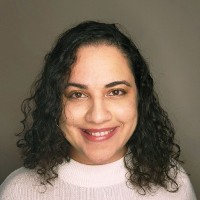
RiSE Scholar: Summer 17
Undergraduate Studies: California State University-Northridge
Program: Ph.D. in Chemical and Biochemical Engineering
Thesis Advisor: Prof. Tewodros Asefa
Ph.D. Research Topic: Mesoporous materials for biofilm mitigation and environmental remediation
Support post Super Grad Award, other notable Awards, fellowships, publications or accomplishments: 2019 GEM Associate Fellowship and a TechAdvance grant she helped co-author to bring her thesis research forward.
Current status in graduate program/Expected graduation: Graduated with Ph.D. in 2024 and is now an Innovation and Commercialization Associate at Argonne National Lab
Advice for prospective graduate students: Get to know what professors at Rutgers around you do and you can possibly collaborate. I’ve had great discussions with different professors about what approach I can take towards my research.
Caitlyn Tobita
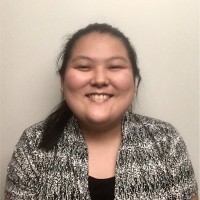
RiSE Scholar: Summer 16
Undergraduate Studies: Chaminade University
Program: Ph.D. in Chemistry and Chemical Biology
Thesis Advisor: Dr. Jean Baum
Ph.D. Research Topic: Caitlyn is interested in collagen structure, interactions, and dynamics. Her current work focuses on studying collagen fibrils produced by mammalian cells via solid state NMR in order to study the fibril surface dynamics in the context of the extracellular matrix.
Support post Super Grad Award, other notable Awards, fellowships, publications or accomplishments: Since joining Rutgers, she has been an author on a paper regarding collagen interactions with a protein B-2m and received an NSF-GRFP honorable mention.
Current status in graduate program/Expected graduation: Ph.D. candidate
Advice for prospective graduate students: Find mentors and friends that you feel supported by—ones that will push you to be better, but can also understand personal circumstances.
Kurt Wagner
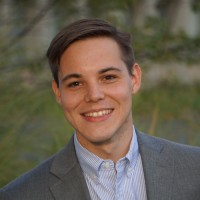
RiSE/Cellular Bioengineering REU Scholar: Summer 16
Undergraduate Studies: Rowan University
Program: Biomedical Engineering
Support post Super Grad Award, other notable Awards, fellowships, publications or accomplishments: *pending
Current status in graduate program/Expected graduation: Graduated with a Masters in 2020 and is now a contract test engineer at Medtronic
Advice for prospective graduate students: *pending